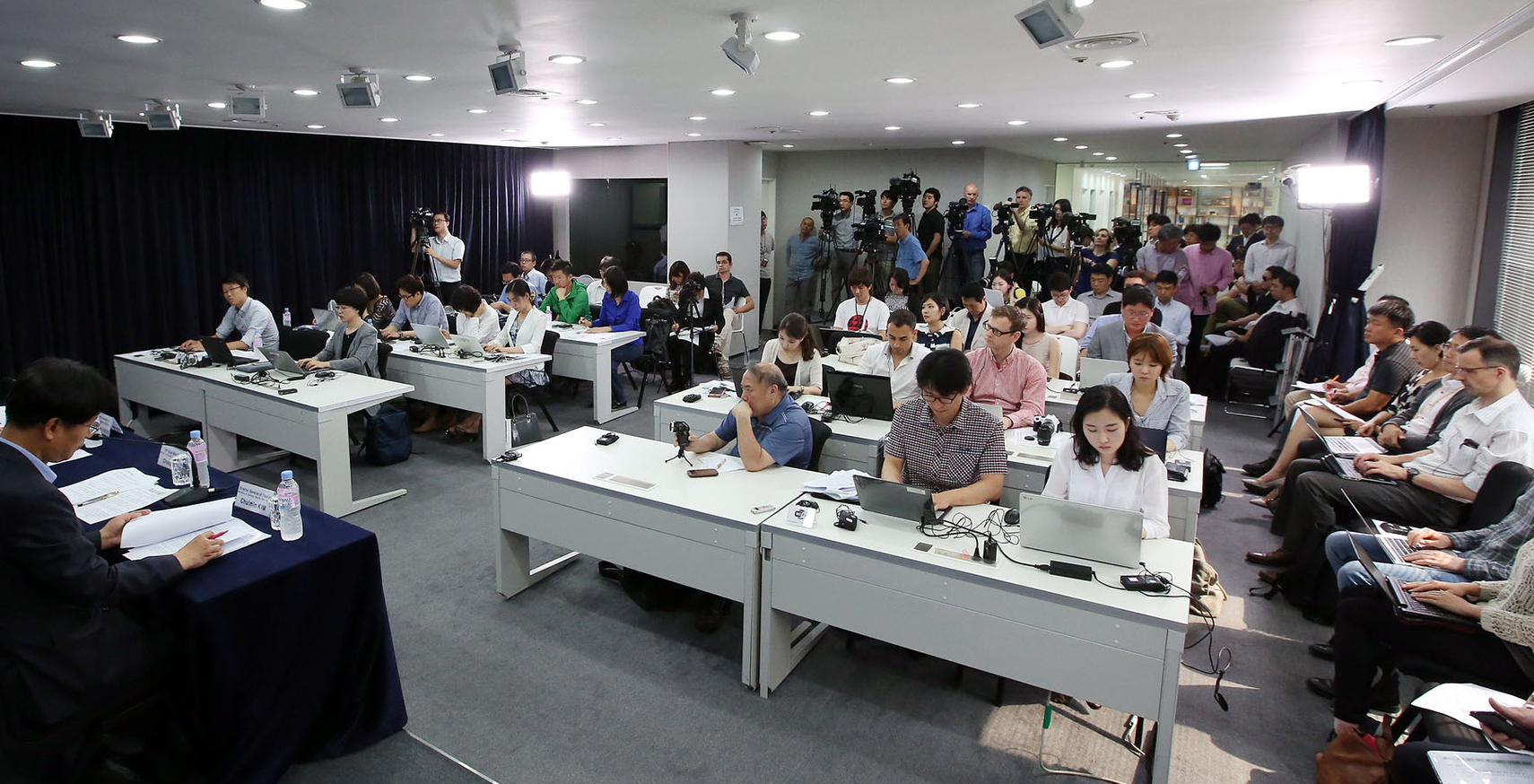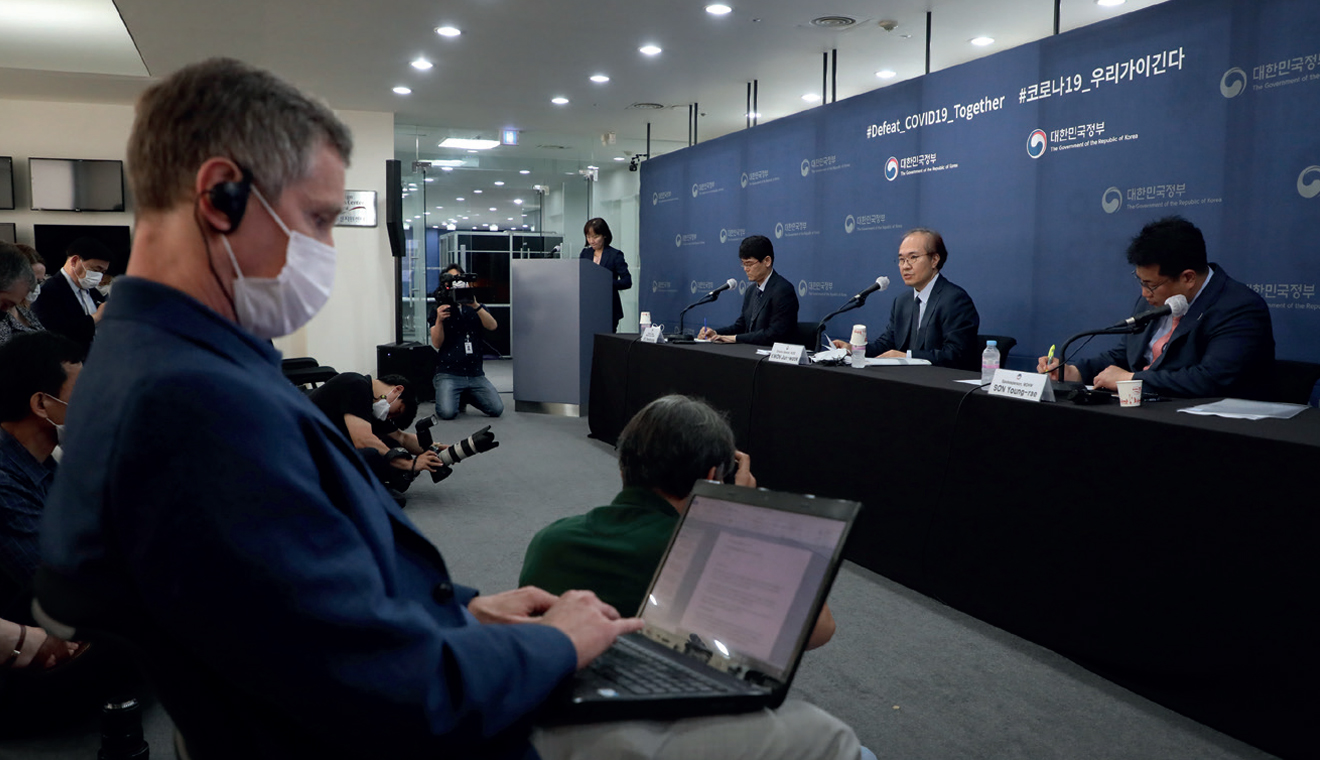April 2021

April 2021
The world sees Korea as a nation with better freedom of speech and of expression, compared to other Asian countries. The fact is backed up by a growing number of major foreign media outlets that have decided to relocate their operations to Seoul.
Written by
Sohn Ji-ae
 © Korea.net
© Korea.net
“Freedom of the press is a precious privilege that no country can forego.” Mahatma Gandhi’s saying reminds us of our duty to respect and uphold the right to freedom of speech and expression.
In the COVID-19 era especially, suppression of media freedom is worse than ever, as some countries were reported to censor media coverage on their major outbreaks.
As legendary American journalist W. Cronkite put, “Freedom of the press is not just important to democracy, it is democracy.”
Last year, Korea ranked at 42nd out of 180 countries on The 2020 World Press Freedom Index, unveiled last year by the international media watchdog Reporters Without Borders (RSF). The country’s ranking is the highest in Asia, ahead of the country’s neighbors: Japan at 66th, Hong Kong at 80th, Singapore at 158th and China at 177th, among others.
As of February 2021, around 280 foreign correspondents are based in Seoul, making news about not only Korea but also its Asian neighbors. News coverage related to Korea has also increased significantly over a decade, 16.7 percent up from 9,010 in 2010 to 30,340 in 2020, the government data said.
The increased media coverage demonstrates growing interest in Korea among foreign media.
It is true that Korea has gained lots of media attention due to its geopolitical issues, mainly involving North Korea. In the pandemic times, too, the country’s swift and efficient response to the virus garnered wide-ranging media coverage worldwide. The growing importance of the country positioned Seoul as “a reasonable choice” for news organizations to settle. As a result, the world’s major foreign news outlets now plan to relocate some of their reporters and journalists to Seoul within this year. The New York Times (The Times) and The Washington Post (The Post) decided to relocate part of their operations to Seoul over the course of this year.
The Post last year picked Seoul as the home to one of its two new breaking-news hubs along with London, as part of its effort to build a global 24-hour newsroom.
 The Seoul-based Foreign Press Center Korea holds a foreign media conference. © YonhapNews
The Seoul-based Foreign Press Center Korea holds a foreign media conference. © YonhapNews
The Times also announced that it would move its digital team of journalists — roughly one-third of its Hong Kong staff — to Seoul, saying “South Korea proved attractive, among other reasons, for its friendliness to foreign business, independent press, and its central role in several major Asian news stories.”
It is reported that before the decision, the newspaper had considered Bangkok, Singapore, Tokyo, and other cities in the Asia-Pacific region as a suitable location. Asked why Korea was chosen over other Asian countries in an interview with the domestic media, Stephen Dunbar-Johnson, international president of The Times, said, “Freedom of speech, freedom of expression. We look at rankings, and Seoul does very well, it ranks very highly. Seoul will become our Asian headquarters.”
Amid the major news outlets’ relocation plans, the Korean government now ramps up its effort to make the nation “more friendly and more attractive towards foreign media.” As part of the effort, the government on Feb. 26 announced plans to upgrade its existing Seoul-based foreign press center, in a way to accommodate more correspondents and provide a better media system.
KOCIS (of MCST) plans to expand its Foreign Press Center in Seoul to the Foreign Media Integrated Support Center. The new facility will be equipped with a media briefing room with an expanded seating capacity of 100, up from 40. It will also have a visual studio, interview room and videoconferencing system.
“Korea is on the verge of an era of 350 foreign correspondents. The new media center will play a crucial role in connecting government institutions and foreign media, as well as be able to effectively respond to the recent surge in foreign media coverage of Korea,” KOCIS said.
The expansion of Seoul’s existing media facility, coupled with the two U.S. media giants’ move to the capital, is expected to play a positive role in attracting more media companies to the country. Hopefully, this will lead to Korea, as Asia’s media hub, promoting media’s free expression and, also, more transparency in sharing information to the public.